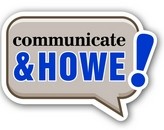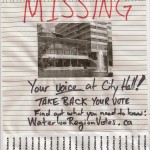Note: If you are an elected politician running for re-election, please check with officials in your jurisdiction to confirm how they expect you to use social media.
In looking at whether a municipal election candidate should have an “election account” on Twitter, I concluded it depends.
The post responded to concerns by a local columnist Mike Farwell about candidates having specific election accounts on a single form of social media.
Facebook was the other social media mentioned in the column with the suggestion that candidate pages created distance with voters.
I vote yes to municipal election candidates having Facebook pages
According to a report in Maclean’s, Canadians are extremely heavy users of Facebook. Out of 35 million Canadian, more than 19 million use Facebook at least once a month with 14 out of 34 using it every day. That means 74% of Canadian Facebook users are on daily-higher than the global and U.S. percentages.
In the US,the average number of Facebook friends range between about 500 for 12 - 24 year olds and 115 for 55 and older. The overall average is about 303.
For those above 24, if they are on Facebook, they probably have between 113 and 328 friends.That tells me that most people continue to use different social media for different social circles. For Facebook that means that for most users their Facebook “friends” are friends or family in real life which almost certainly doesn’t includes all their municipal election candidates.
Unless a candidate is primarily trying to reach voters 24 and under on Facebook, they are not likely to reach many others using only a personal profile and almost certainly should also have a candidate Facebook page.
Facebook is different than Twitter
How the majority of people use Facebook is different than how Twitter is used.
Facebook requires that both people agree to be friends. It easily allows you to just share information with Facebook friends rather than publicly to the world. (Sure you can allow anyone to “follow” you on Facebook but I don’t expect that’s common.)
Twitter is set up to encourage you to share your posts with everyone and anyone. Any user can choose to follow any other user without mutually agreeing to that. (Sure you can block people but they can still see your tweets. You can also protect your tweets but that’s not common.)
So while having a single presence on Twitter likely makes sense, it almost certainly doesn’t on Facebook.
Facebook profiles are different than Facebook pages
Although many people refer to their Facebook account as a page, it’s officially a personal profile.
How to tell the difference? You are “friends” with an individual’s profile and you “like” a page.
Pages tend to be used by organizations and businesses but are also used by individuals such as musicians, celebrities and politicians who have a public presence.
A personal profile
Why? These people may also have a personal profile but they want to be able to share information and interact differently with people closest to them than they do with everyone else who knows them and is interested in them. It’s the equivalent of coming home and being able to put on comfortable clothes and choose who learns personal information.
A candidate may want to share photos or amusing anecdote’s about their kids or vacation with friends and relatives for example. Facebook allows them a chance to share with them in a controlled way.
Wives, husbands, kids, parents may crossover into a person’s public life but that doesn’t mean that all information about those people needs to be shared with the world. If a candidate’s relative is having surgery, they may want to share that information on Facebook without sharing it with acquaintances let alone potential voters.
Facebook pages have advantages over personal profiles
A Facebook page gives an election candidate a space to share information with all voters whether they are Facebook friends or not. Used well that gives voters an opportunity to interact with the candidate and/or the campaign team.
Having a page also provides general, anonymous demographic information about the people who like a page. For example, do they live in the right city? And what kind of content they like. That information isn’t available for an individual profile.
Finally, a page can advertise. That could be help to introduce it and the content on it to voters who are not Facebook friends. It can also pay to sponsor posts to increase the chances everyone who likes a page (and possibly their friends) sees it.
How you use social media is most important
“Getting social media” is not about how many Twitter accounts you have nor whether a candidate has both a profile and page on Facebook. “Getting social media” is about how you use the tools that you choose.
A Facebook page is not automatically an ad. If content is simply being broadcast without any engagement or personality, it functions like an ad. If the posts are coming from a person talking to other people and feature engagement, it’s keeping the social in social media.
In short, it comes down to whether an election candidate understands and masters the fundamentals of social media.
How can a voter tell if a candidate gets social media? Think about what kind of customer they are at your favourite coffee shop.





